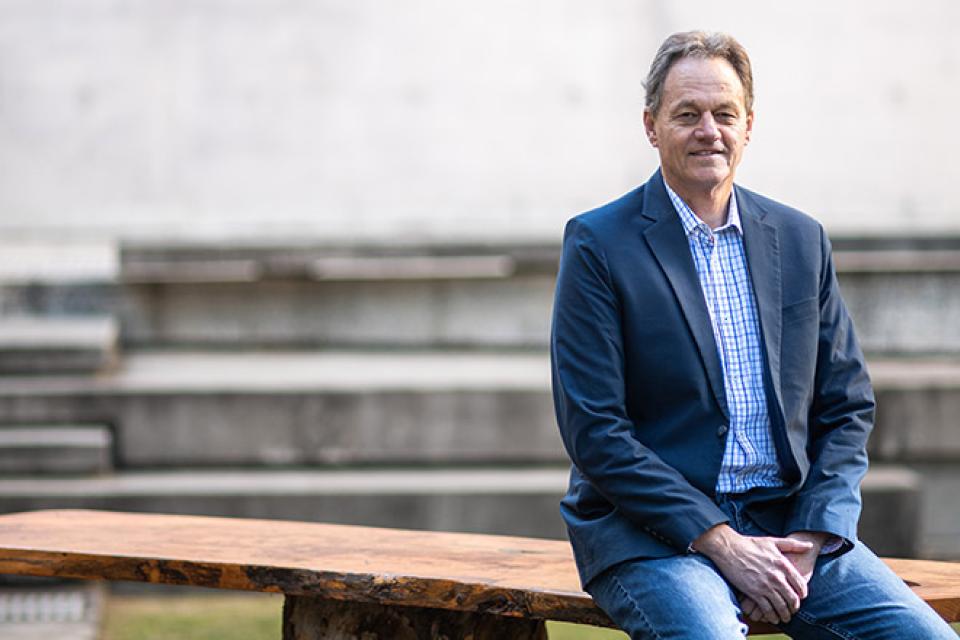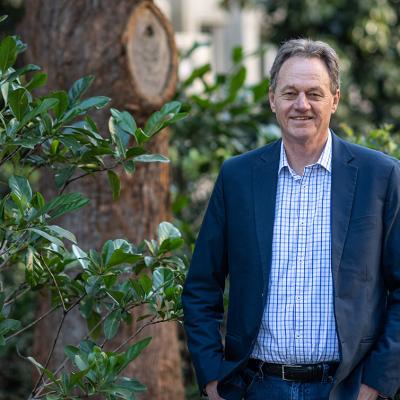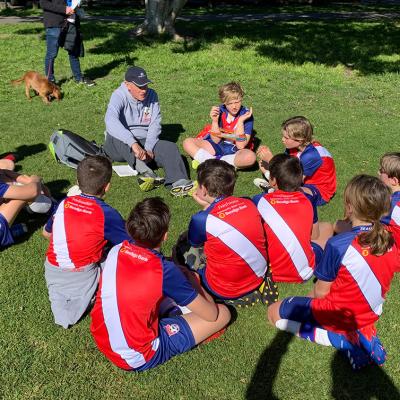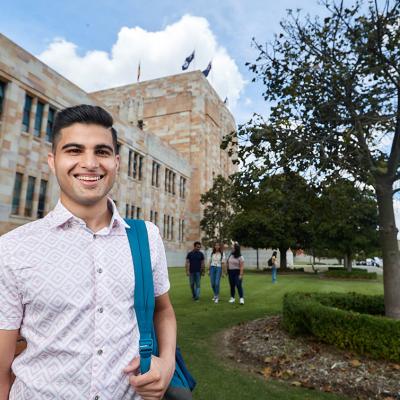Graeme Rose, a postgraduate in professional accounting and applied science, explores the pandemic’s impact on aspiring Olympic athletes.
Resilience is an important trait for any top-level athlete. Never has that been more apparent than with the first ever delay of a scheduled Olympics.
As a high-performance manager at Archery Australia, UQ alumnus Graeme Rose witnessed the hard times and heartaches firsthand.
“The postponement of an Olympic Games is unprecedented and has provided a challenge that no one has ever faced before,” he says.
“The biggest issue we faced was the ongoing uncertainty about whether it would proceed as planned, be postponed or even get cancelled."
“All athletes faced the prospect of their Olympic dream being taken away from them, and it was something they had no control over.”
“There’s no guide to managing an Olympic program during a pandemic.”

The announcement that the postponement was only for one year came as a relief and great morale boost for many athletes Graeme works with, but it didn’t solve all the challenges. Athletes continued to face hurdles such as:
- ongoing or recurring lockdowns in some states
- many domestic competitions postponed or cancelled
- no access to international events.
Still, with in-house professionals including a performance psychologist and an athlete wellbeing and engagement manager, Archery Australia managed to set a strong example for how sports and coaching organisations can support athletes and their families during a crisis.
“We’ve slowly been able to overcome all these hurdles,” says Graeme.
“Although our preparation for Tokyo is far from ideal, we’re comfortable that we’ve done everything we can to prepare."
“As with all of last year’s plans, we will adapt to whatever opportunities present themselves.”
Olympics are never easy
It’s tempting to catastrophise about COVID-19 “ruining” the Tokyo Games, but Graeme is quick to point out this is hardly the first Olympics to face barriers.
“Each Olympics provides obstacles unique to the host country and to the societal expectations of the day,” he says.
“The last five have been held in Australia, Greece, China, the UK and Brazil – and there have been some remarkable challenges with each campaign.”
Notable challenges faced in recent Olympics
- The 2016 Rio Olympics faced backlash from spending hundreds of millions of Brazilian reals to host the games against the backdrop of poverty-stricken favelas (slums).
- The 2012 London Olympics ran shortly after terror attacks on the iconic London Underground.
- The 2008 Beijing Olympics were expected to be affected by the city’s infamous, industrial-level smog.
- The 2004 Athens Olympics saw a myriad of travel restrictions imposed following the tragedy of 9/11, which impacted the movements of many athletes.
- Social media now presents a unique dynamic for sports, giving members of the public a platform to critique everything from team selection to uniform design.
An unchanging path for aspiring Olympians
Whatever complexities the host country and International Olympic Committee might face, the goal for athletes remains the same from games to games: be one of the best in the world at your sport.
While much of Graeme’s role is dedicated to managing Archery Australia’s Sports Science program, developing national structures and liaising with program partners (such as the Australian Institute of Sport), he also supports coaches and athletes in their daily training – so he knows what it takes to make it on the global stage.
“Every sport has very different intricacies,” he says.
“An Olympic archer in Australia requires around five hours of shooting a day, three strength and conditioning sessions a week and regular competitions on the weekend.”

While having raw talent and the dedication to stick to such a strict routine might be essential, Graeme believes there’s one trait that conquers both for becoming an Olympian.
“Resilience is probably the most important quality in any Olympic athlete,” he says.
“It takes many years of training and learning to reach Olympic level, and there are many highs and lows along the way.”
“Athletes who can bounce back from the disappointment of injury or non-selection and maintain their motivation to train have the best chance of success.”
It takes resilience to work with these athletes, too. Graeme reinforced his while studying two UQ postgraduate degrees that have made him uniquely qualified for his role as a high-performance manager.
“My Master of Professional Accounting provided me with the understanding of how to manage budgets and present and read financial reports,” he says.
“And my Graduate Diploma in Applied Science provided me with an insight into what areas of sports science are of most benefit to athletes and coaches and how they impact on performance.”
Now, he gets to enjoy helping athletes achieve their goals – a lifelong passion and ambition of his – while also taking on the rewarding challenge of managing an entire program.
“The challenge is now to assist athletes and coaches to achieve their goals through building sustainable pathways and programs,” he says.
The obstacles that future Olympic Games might face are unknown. But with our best athletes in the hands of people like Graeme, we know international tournaments will keep breaking records, pushing the possibilities and inspiring the world for centuries to come.
Fact: 92% of all UQ postgraduates say their course learnings were valuable for the future. (2020 Graduate Outcomes)





